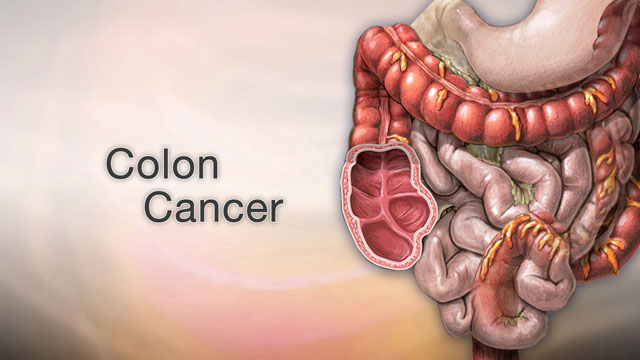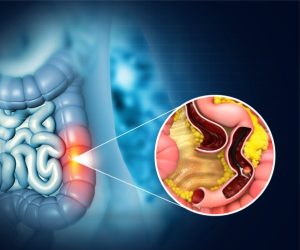- 3 January 2024
- 253
Unveils Essential Insights into Colon Cancer and Prevention Strategies

Introduction
In the realm of health and well-being, few subjects are as vital as colon health. Join Dr. Jason R. Williams, a distinguished expert in lifestyle medicine, as he unveils a comprehensive guide to understanding colon cancer and adopting effective prevention strategies. In this article, Dr. Williams serves as a beacon, shedding light on the importance of proactive measures and awareness in safeguarding your health.
Colon Cancer Unveiled: Understanding the Basics
- Silent Development: Colon cancer often progresses without noticeable symptoms in its early stages, underscoring the importance of regular screenings for early detection.
- Risk Factors: Factors such as age, family history, and certain genetic conditions can increase the likelihood of developing colon cancer, necessitating vigilance and proactive health management.
- Screening Efficacy: Colonoscopies are highly effective in identifying and removing precancerous polyps, playing a crucial role in preventing the development or progression of colon cancer. Regular screenings are essential for maintaining colon health.

Symptoms and Warning Signs
Changes in Bowel Habits:
Persistent alterations in bowel habits, such as diarrhea or constipation, may signal an underlying issue, including colon cancer.
Rectal Bleeding:
The presence of blood in the stool or rectal bleeding is a significant warning sign that requires prompt medical attention.
Abdominal Discomfort or Pain:
Persistent abdominal discomfort, cramping, or pain, especially if it’s new or unexplained, should be investigated further.
Unexplained Weight Loss:
Significant and unintentional weight loss without changes in diet or exercise can be indicative of various health concerns, including colon cancer.
Fatigue:
Chronic fatigue, weakness, or anemia (low red blood cell count) might be associated with colon cancer, particularly if accompanied by other symptoms.
Incomplete Bowel Movements:
A feeling of incomplete bowel movements despite having gone to the restroom may suggest an issue within the colon.

Is Colon Cancer Cure able
The curability of colon cancer depends on various factors, including the stage at which it is diagnosed, the extent of spread, and individual patient characteristics. In many cases, colon cancer is treatable, and early detection significantly improves the chances of a cure.
Early Stages:
When colon cancer is detected at an early stage, typically when it’s localized to the colon and has not spread, the chances of a cure are high. Surgical removal of the tumor is a common approach, often followed by adjuvant therapies like chemotherapy to eliminate any remaining cancer cells.
Advanced Stages:
In cases where colon cancer has advanced or spread to nearby lymph nodes or distant organs, the curative potential decreases. However, advancements in medical treatments, including targeted therapies and immunotherapy, have improved outcomes for some patients with advanced stages of colon cancer.
Individual Factors:
Patient-specific factors, such as overall health, response to treatment, and the presence of specific genetic mutations, also influence the prognosis and potential for cure.

Lifestyle Choices for Colon Health
Maintaining a healthy lifestyle significantly contributes to colon health. Two pivotal lifestyle choices include regular physical activity, which reduces the risk of colon cancer by promoting healthy digestion and minimizing inflammation; and avoiding smoking, as it not only elevates the risk of various cancers, including colorectal cancer, but also impairs overall digestive health.
- Regular Physical Activity: Engaging in regular exercise promotes healthy digestion, reduces inflammation, and lowers the risk of colon cancer.
- Avoiding Smoking: Steering clear of smoking is crucial for colon health, as smoking is linked to an increased risk of colorectal cancer and negatively impacts overall digestive well-being.
- Balanced Diet: Adopting a diet rich in fruits, vegetables, whole grains, and lean proteins supports optimal colon function and reduces the risk of colorectal cancer.
- Limiting Alcohol Consumption: Moderating or avoiding alcohol intake helps maintain colon health, as excessive alcohol consumption is associated with an elevated risk of colorectal cancer.
Food are Bad for Colon Cancer
- Processed Meats: Minimize consumption of processed meats like bacon, sausages, and hot dogs, as they may increase the risk of colorectal cancer.
- Red Meat: Limit intake of red meat, especially processed and well-cooked meats. Opt for lean protein sources like fish, poultry, or plant-based alternatives.
- Highly Processed Foods: Reduce the consumption of highly processed foods, which often contain additives, preservatives, and unhealthy fats.
- Sugary Beverages: Cut back on sugary drinks, as excessive sugar intake has been linked to an increased risk of colorectal cancer.
- Alcohol: Moderate or eliminate alcohol consumption, as excessive alcohol intake has been associated with an elevated risk of colorectal cancer.
- Refined Carbohydrates: Minimize the consumption of refined carbohydrates, including white bread and sugary snacks, as they may contribute to inflammation and affect gut health.
- High-Fat Foods: Limit intake of high-fat foods, especially those rich in saturated and trans fats. Opt for healthier fats found in nuts, seeds, and olive oil.

Is colon cancer serious?
Yes, colon cancer is considered a serious and potentially life-threatening disease. It is one of the leading causes of cancer-related deaths globally. The seriousness of colon cancer arises from several factors:
Potential for Spread:
If left untreated or undetected, colon cancer can progress and spread to other parts of the body, a process known as metastasis. Advanced stages of colon cancer may be more challenging to treat.
Impact on Health:
Colon cancer and its treatments can significantly impact an individual’s health. Surgery, chemotherapy, and other interventions can cause side effects, and the overall health impact depends on the stage and aggressiveness of the cancer.
Risk of Recurrence:
Even after successful treatment, there is a risk of cancer recurrence. Regular follow-up care and monitoring are essential to detect and address any signs of recurrence.
Potential Complications:
Colon cancer can lead to complications, such as bowel obstruction, perforation of the colon, and other issues that may require urgent medical attention.

Key Points: A Visual Summary
| Understanding Colon Cancer | Symptoms and Warning Signs | Colonoscopy Demystified | Lifestyle Choices for Colon Health | Prevention Strategies |
|---|---|---|---|---|
| Basics of Colon Cancer | Recognizing Symptoms | Importance and Procedure | Nutrition and Diet | Screening Guidelines |
| Risk Factors and Predispositions | When to Seek Medical Attention | Preparing for a Colonoscopy | Physical Activity | Colon-Healthy Lifestyle |
Conclusion: Becoming a Guardian of Your Health
Dr. Jason R. Williams concludes this essential guide, urging readers to become guardians of their health. Empowered with knowledge, awareness, and actionable strategies, you have the tools to navigate the complexities of colon health. By embracing preventive measures, understanding symptoms, and adopting a colon-healthy lifestyle, you can actively contribute to safeguarding your well-being. Remember, your health is a journey, and with Dr. Williams as your guide, you are equipped to navigate it with wisdom and resilience.

